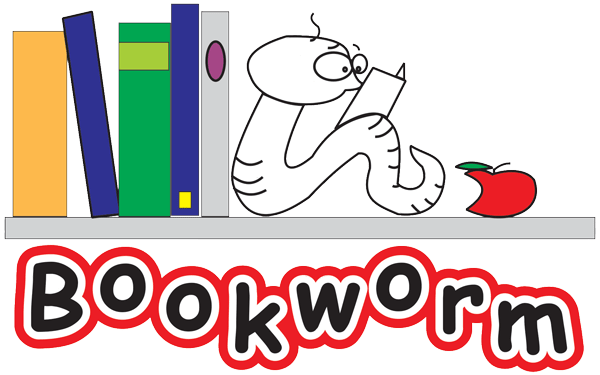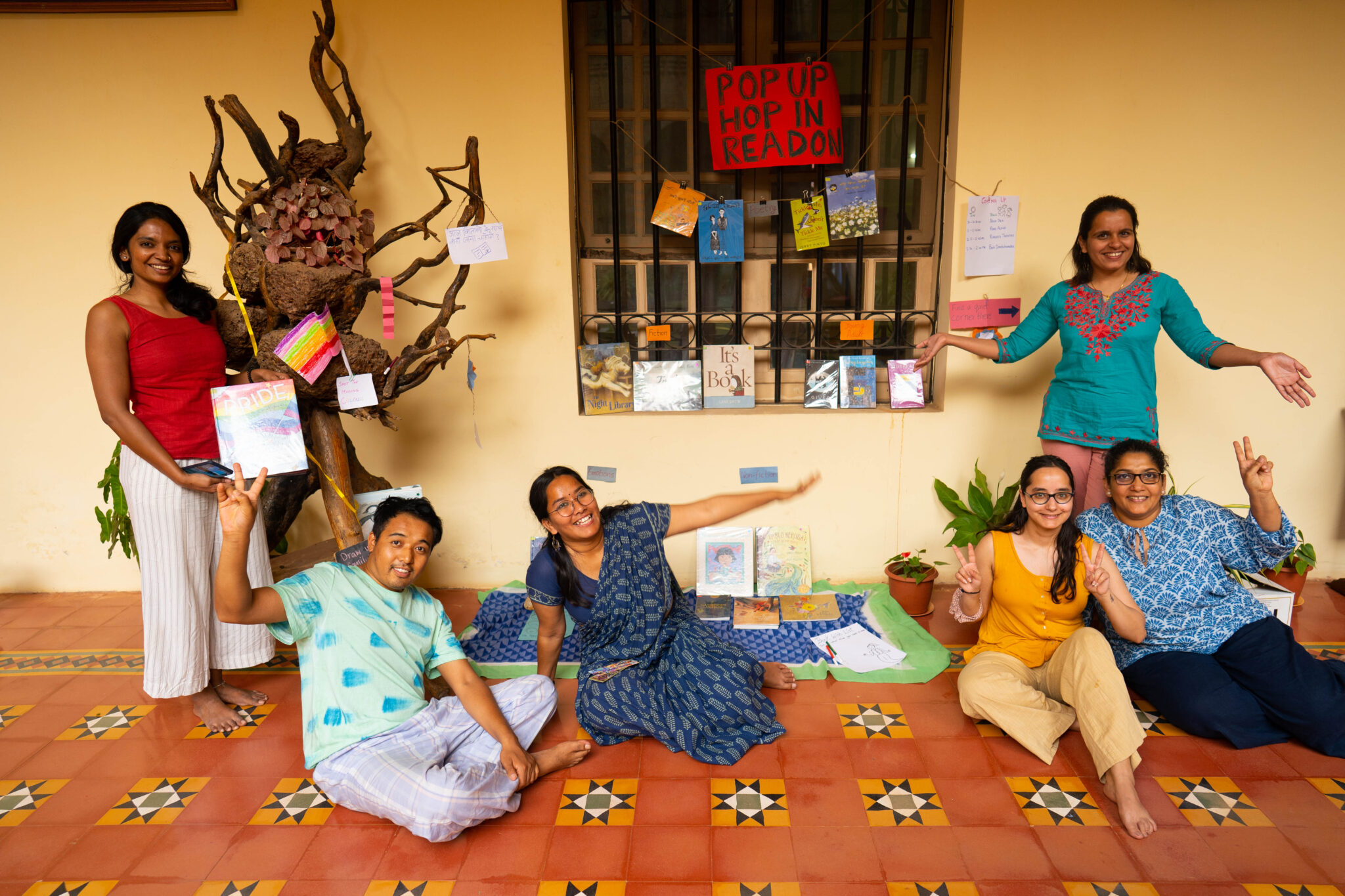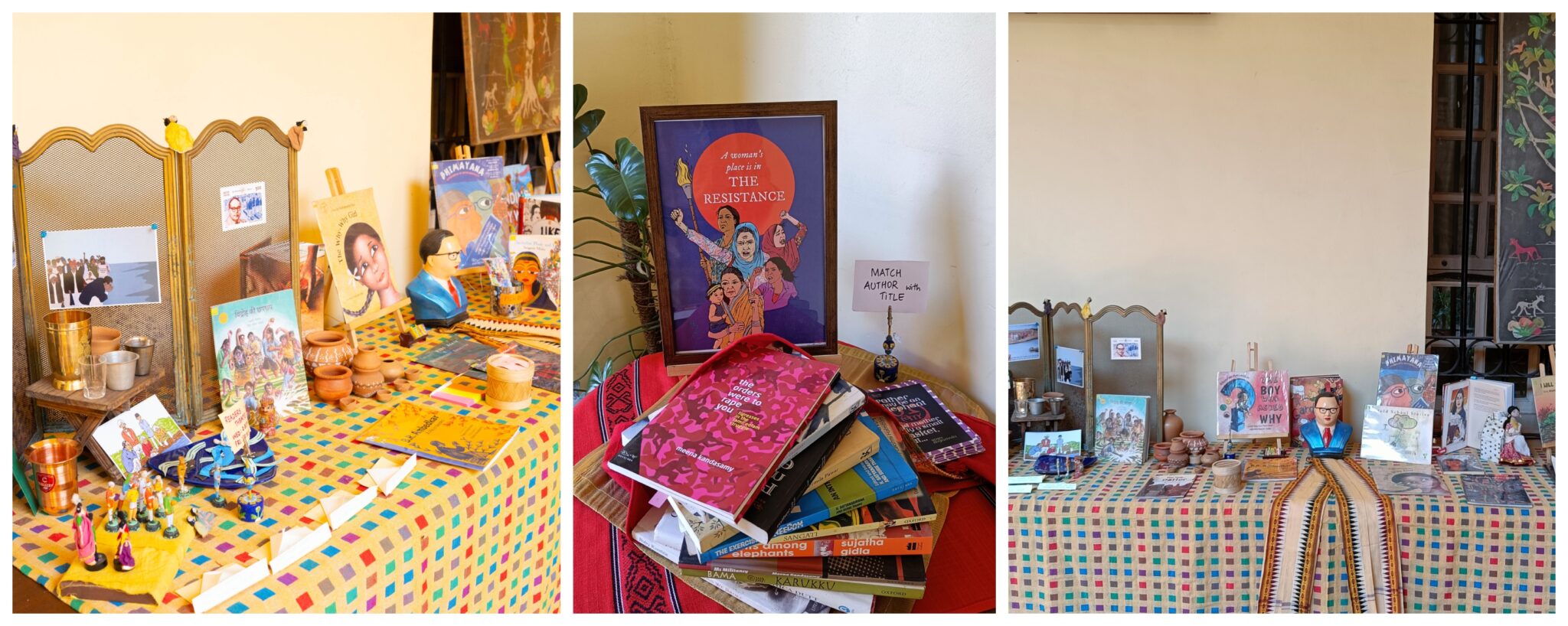Written by Deepti Ganesh, LEC 2022
While I was deciding on a career, my mother suggested librarianship based on my love for reading and keeping meticulous records of my extensive collection of books. At that time, I immediately dismissed the idea, not impressed by the picture of a librarian I held in my head.
Like most students with a lack of clarity on what to do, I chose to study Computer Science engineering, believing that it will give me better opportunities in the future. I would never have imagined that, almost a decade later, I would end up working as a school librarian!
I have been incredibly lucky to find opportunities that aligned with my passion. I worked as an editor in children’s publishing houses and fell in love with children’s books. I was eventually offered a position as a librarian in an IB (International Baccalaureate) school that mainly involved promoting a love for reading within the community, a challenge that was intriguing enough to prompt another deviation in my career path.
I became a school librarian at the beginning of the third wave of the pandemic, with my first interactions with children taking place over Zoom. I recommended books and got to know my students and the collection, but I wondered what more there was to the job.
Halfway through my first year, I came across the Library Educator’s Course, which seemed to be exactly what I needed at the time. Here was a course that looked beyond the administerial aspects of librarianship and could give me a space to learn more about library practices from the lens of an educator.
I stumbled into librarianship but LEC has helped me find purpose in my work. The course has prompted me to think beyond myself and my career and has opened my eyes to all the different ways a library can be a catalyst for change.
During my very first meeting with my mentor group, we discussed a question that has come up over and over again throughout the course – What does it mean to be a librarian?
I’m starting to realise that there is no right answer to this question. Librarians need to be aware of the needs of their communities and constantly evolve to keep up with the times. The course introduced me to the history of librarianship, and, most importantly, an insight into how librarians are making a difference in India and around the world. I have also gained new perspectives from the other participants of the course, who are already challenging preconceived notions of the role of a librarian and are making tremendous headway in changing the landscape of library spaces in India.
To be honest, I assumed it would be easy enough to transition from publishing to working in the library. Having been an editor, I figured that I already knew how to critically look at children’s books, and talk about them. But from the very beginning of the course, I was constantly finding myself being challenged by the extent of how much there was to learn and how much I’ve just not thought about!
In my own context, I work with children who have class and caste privilege. I myself grew up in a privileged bubble where I was not exposed to any ‘taboo’ topics in school. I quickly realised that I wanted my library to be a safe space, but that is easier said than done. The course showed me how I could open up discussions on sensitive topics such as caste, gender, etc., in a safe and non-judgmental way.
During the weeks leading up to the second contact period, Theju, our facilitator for the unit on “Engaging with Children’s Literature” asked us to think deeply about our collection and examine ‘problematic’ trends in picture books. Along with this, we were also asked to question our understanding of childhood, thereby confronting our own assumptions about what children are ready for in the library. This journey has prompted me to take a hard look at my own biases and realign what I want to achieve in the library. I am now more mindful of what the students need rather than what I want to do in the library.
When we arrived at the retreat centre for the second contact, we were greeted by a striking, thought-provoking display on caste. It was filled with some amazing books on caste as well as provocative questions that forced us to think about the issue. During the week, we discussed Kancha Ilaiah’s book Mother, which opened my eyes to the ways that books and stories could be used as a way to challenge what we know and understand about the world. We were also prompted to read ‘against the text’ – from contexts to criticisms, we learnt to be cognizant of every piece of work that we introduce in our spaces. I am determined to take this learning back to my own work and help my students navigate topics that they might not be fully aware of.
Even though the course is quickly coming to an end, I now know that learning how to be a librarian is a lifelong journey. I have started my journey to discover my underlying values that will form my vision for my library. Thanks to LEC, I feel supported by the incredible community of library educators that the Bookworm team has created over the years. I know that there is so much more to learn and explore in this field and I’m excited to put all my learnings into practice!



